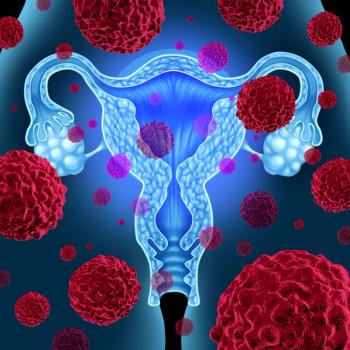
Adavosertib Induces Tumor Shrinkage in 30% of Patients with Uterine Serous Carcinoma
A recent clinical trial’s results found that a targeted drug known as adavosertib caused tumors in nearly 30% of patients examined with uterine serous carcinoma, a hard-to-treat form of uterine cancer.
A targeted drug caused tumors to shrink in nearly 30% of patients with a hard-to-treat form of uterine cancer, according to study results being presented at the virtual session of the Society for Gynecologic Oncology (SGO) Annual Meeting on Women’s Cancer.
The preliminary results gathered from this clinical trial showed strong activity of WEE1-directed therapy in uterine serous carcinoma (USC). The drug targets the WEE1 protein, which regulates the G2/M checkpoint.
“Adavosertib demonstrated remarkable activity as a single agent in this group of patients,” lead author, Joyce Liu, MD, MPH, said in a press release. “It’s especially encouraging in a disease such as USC, for which current treatments are of limited effectiveness.”
The trial included 35 patients with this form of uterine cancer, who had previously received platinum-based chemotherapy. The participants took adavosertib orally on a set schedule, and the results were recorded.
A median follow-up of 3.8 months showed that 10 of 34 patients who could be evaluated had tumor shrinkage, which accounted for a response rate of almost 30%. Even more, the researchers found that some responses were extremely durable, with patients responding over a year after initial treatment.
Common adverse events from the treatment included anemia, diarrhea, nausea, and fatigue.
Adavosertib subjects tumor cells to staggering levels of DNA damage and takes advantage of an inherent weakness of some cancer cell’s relentless growth. This growth creates a condition called replication stress, in which the ability for cancer cells to duplicate is significantly hindered.
More than 90% of USC cases are marked by a mutation or other abnormality in the TP53gene. This gene plays a crucial role between the first phase of cell growth and the DNA-duplication phase. Without a functioningTP53gene, cells can “barrel into the DNA-duplication phase with extensive DNA damage on board,” according to the release.
Even more, when the TP53gene is mutated or missing, this places enormous strain on the aforementioned G2/M checkpoint. By blocking one of the proteins involved in guarding the entry to mitosis, it burdens tumor cells enough that they cannot survive through so much DNA damage.
Dana-Farber Cancer Institute utilized its experts to report on and conduct this study. The institute’s mission is to “reduce the burden of cancer through scientific inquiry, clinical care, education, community engagement, and advocacy.”
Reference:
New targeted agent produces considerable responses in trial with patients with uterine serous carcinoma [news release]. Toronto, Ontario, Canada. Published April 21, 2020.
Newsletter
Stay up to date on recent advances in the multidisciplinary approach to cancer.



















































